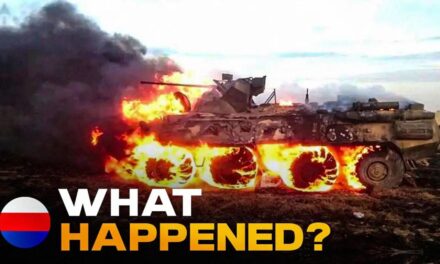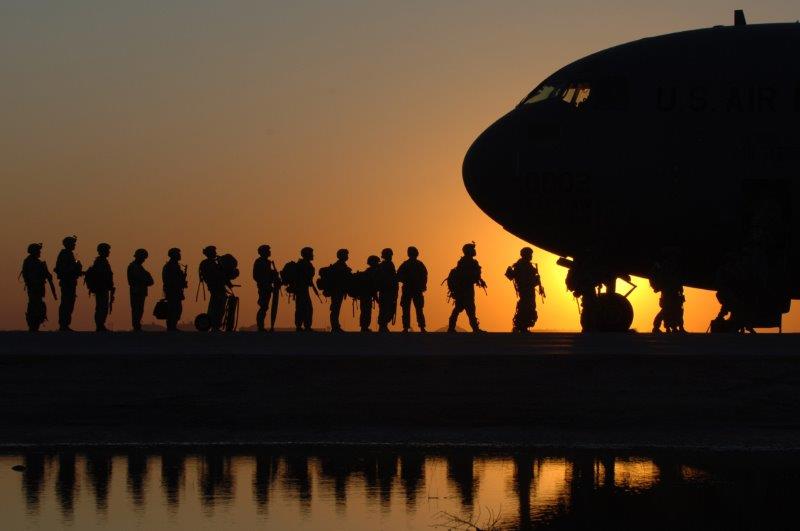The Military Police is a specialized branch of the military that is responsible for maintaining law and order within the armed forces. Military police officers are trained to enforce military laws and regulations, as well as protect military personnel and property.
In the past, military leaders have chosen soldiers, both men and women to act as military police or law enforcement officers in an effort to maintain discipline and order within the ranks. Today, military police play a crucial role in maintaining the safety of military structures, bases and personnel everywhere.
In addition to completing lengthy training, potential military police officers must also exhibit a variety of special skills, including physical fitness, attention to detail, and the capacity to act quickly under pressure. In addition to their duties in law enforcement, military police troops are vital to community involvement and social impact initiatives.
Key Takeaways
- The military police are essential to maintaining law and order in the armed forces.
- The history of military police have played a significant role in history.
- Military police officers need a variety of specialized skills, such as mental agility and physical stamina.
Military Police Throughout History

The historical practice of assigning troops to uphold military law and discipline may be traced back to the beginnings of the Military Police (MP). However, the current Military Police system was not implemented until the conclusion of World War I, when it became clear that a specialized force was needed to maintain order and safety on the battlefield.
The Military Police were essential to maintaining peace and safety at military installations and on the front lines during World War II. They were in charge of looking into wrongdoing, upholding military rules, and guarding bases and convoys.
The Military Police Corps of the United States Army has been instrumental in preserving law and order inside the armed services ever since its establishment in 1941. The Military Police Corps, the only Army organization with both combat and law enforcement duties, is in charge of providing the Army with security and law enforcement services.
Did You Know: Military police in the United States Army were the only branch of the military allowed to wear sidearms. Military police were also allowed to carry shotguns and rifles, but these were not as commonly used. The practice of allowing military police to carry sidearms continued after World War II. It is still in effect today.
The Department of the Army has issued rules and regulations that apply to the Military Police Corps. It oversees the operation of this branch as well as the officer's equipment and training.
The Military Police has a rich history that dates back to ancient times. The modern Military Police system was established in 1941 during World War I and played a crucial role in maintaining discipline and security during World War II. Since then, the United States Army Military Police Corps has since become an integral part of the Army's law enforcement and security system. The Military Police Corps ultimately is governed by rules and guidelines established by the Department of the Army.
Duties of the Position
The Military Police (MP) are tasked with maintaining military law and order and are a crucial component of the armed forces. Their main responsibilities are to preserve the law, maintain safety, and ensure the continued performance of military operations without disruption.
Law Enforcement
One of the main duties of the Military Police is to provide law enforcement services to the military community. Patrolling military installations, responding to emergencies, and helping other law enforcement agencies are a few of these duties. They have to look into and catch criminals in addition to upholding military rules.
Investigations
Investigators with the military police have significant training to look into crimes both on and off base. They work along with other law enforcement organizations to investigate crimes, find the offenders, and build cases against them. By supporting police intelligence operations, they also assist in the detection and prevention of criminal activity before it occurs.

Area Security
The Military Police are responsible for guarding military bases and other locations where military operations are taking place. It is required to set up checkpoints, inspect cars, and police the region to ensure that there are no unauthorized personnel there.
Forceful Deterrence
Security for military equipment and facilities is another responsibility of the Military Police. As a result, conducting risk assessments and developing and implementing security plans are essential for preventing danger and potential threats.
Arrests and Detentions
Military Police officers have the authority to make arrests and detain individuals who violate military laws and regulations. They must also ensure that each inmate is treated humanely and that their rights are upheld.
To sum things up, the Military Police are crucial to maintaining order among military personnel. They are responsible for enforcing the law, conducting investigations, keeping the area secure, and guarding military personnel and property. They need a high level of skill, training, and leadership in order to perform their duties effectively.
Training and Skills
Military police personnel have intensive training to deal with a wide range of situations. This training is designed to prepare them to handle whatever challenges they face. This section will cover the principles, one station unit training, and qualifications that military police officers get.
Basic Training
All recruits must successfully complete basic combat training before moving on to military police training. The aim of basic training is to provide recruits with the essentials they will need to efficiently carry out their duties as soldiers. The type of training they’ll receive here includes fitness, weaponry, and tactics. Additionally discussed in class are army values, traditions, and customs.
One Station Unit Training
After completing their basic combat training, military police officers get one station unit training. This training is specific to the military police and its aim is to equip service personnel with the skills and knowledge necessary to function well in their capacities as military police officers. A few of the topics taught in one station unit training are corrections, communication, and intelligence collection.
Did You Know: One of the most demanding and rigorous training programs in the military is police dog handler training. The training program typically lasts for 17 weeks and it is not uncommon for trainees to drop out. The dogs used in military dog handler training are typically German Shepherds, Belgian Malinois, or Dutch Shepherds and are trained to detect a variety of substances, including drugs, explosives, and people.
Certifications
Military police officers are able receive certifications in a wide range of areas of expertise. These certifications demonstrate and show that a soldier has achieved a certain level of proficiency in one or more particular areas. Some of the certifications available to military police officers include:
- Corrections Specialist
- Physical Security Specialist
- Traffic Accident Investigator
- Protective Services Specialist
Service members must go through further training and provide proof that they have mastered the necessary abilities in order to obtain these certificates.
All things considered; military police officers receive quite a bit of training. Thanks to the training they get, they will be better prepared to handle any situation they may encounter as members of the military police. A U.S. citizen can enlist in the military as a police officer if they have a high school diploma or GED and a strong result on the Armed Services Vocational Aptitude Battery (ASVAB). Enlisted soldiers can also serve in the army reserve as military police officers.
Military Police Forces in Different Countries

United States
The Military Police (MP) are in charge of preserving law and order inside the United States Army. The MPs are tasked with security, investigations, and maintaining military law. The Military Police Corps (MP Corps), in the United States Army's is considered the largest branch.
Fort Leonard Wood in Missouri serves as the home base for the US Army MP Corps. One of the several divisions that make up the MP Corps, the 18th Military Police Brigade is responsible for maintaining law and order for the US Army in Europe.
Europe
The United States Army in Europe (USAREUR) has several MP units stationed in Germany. Hohenfels is home to the 66th Military Police Company, whereas Grafenwoehr is the location of the 709th Military Police Battalion. The United States Armed Forces include the 615th Military Police Company in Vicenza, Italy, as well as the 529th Military Police Company in Wiesbaden, Germany.
The MPs in Europe are in charge of ensuring the safety of American troops and local residents. They work together with local law enforcement to ensure the security of military personnel and their families.
MP’s In Other Countries
Other countries around the world also have their own form of military police forces. These forces are responsible for maintaining law and order within the military community and enforcing their version of military law. Here are a few other examples of countries with military police forces:
- Canada: The Canadian Armed Forces Military Police provide law enforcement services to the Canadian military community.
- United Kingdom: The Royal Military Police is responsible for providing law enforcement services to the British military community.
- Australia: The Australian Defense Force Investigative Service is responsible for conducting investigations within the Australian military community.
In many nations, the Military Police are crucial to maintaining order inside the armed forces. They invest a lot of time and effort into ensuring the safety of military men and their families.
Benefits and Salary
In addition to other benefits, military police officers receive a hefty salary package. In addition to their normal pay, they receive allowances for living expenses, food, and clothes. Additionally, they are qualified for a number of benefits including healthcare, retirement plans, and financial help for higher education.
Pay and benefits for military police officers are based on their rank, number of years of service, and duty station, among other things. Military police officers typically make around $50,000 a year, with opportunities for advancement and higher pay as they gain knowledge and experience while undergoing additional training.
Based on the nature of their employment, military police officers are eligible to additional pay and bonuses. For example, those who serve in combat zones receive hazardous duty pay, while those who speak more than one foreign language receive language proficiency pay.
In addition to their normal salaries and benefits, officers in the military police enjoy a variety of opportunities for professional development and promotion. They have access to several comprehensive training programs in subjects like criminal investigations, leadership, counterterrorism, and criminology. The knowledge students acquire from these programs not only increases their employability but also increases their earning potential.
In general, military police personnel receive good pay for their sacrifices made on behalf of their nation, both financially and in other ways.

Community and Social Impact
The Military Police play a crucial role in maintaining discipline within the US Armed Forces and around the world. Although their primary duties are to uphold order and safety, the communities they serve also significantly benefit from their presence. Not only that, but they also protect civilians in the area of military installations and bases.
The Military Police engage with locals in a variety of ways, including community policing, outreach programs, and volunteer work. Events like this can help to build trust and goodwill between the military and the civilian community. Additionally, the Military Police protects public events including parades, concerts, and fairs.
The needs of the local women and children are given particular consideration by the Military Police. They provide educational programs on safety and security to schools and community groups. Additionally, they work together with local law enforcement to support victims of sexual and domestic violence.
The Military Police are highly committed to protecting the rights of civilians everywhere and ensuring that they are treated fairly and with respect. They investigate complaints of misbehavior by service members and punish those who violate the law or military regulations.
In addition to their own community involvement activities, the Military Police assists municipal police departments. They profit by sharing knowledge, assets, and training, which raises the standard of law enforcement in the community as a whole.
The Military Police provide excellent community service and are crucial to maintaining law and order both inside and outside the military.
Problems and Potential Solutions

The Military Police (MP) have several challenges in carrying out their tasks. These challenges might be anything from assisting local law enforcement at crime scenes to managing prisoners of war. However, the MP has developed countermeasures to these dangers in order to ensure the safety of both military personnel and civilians.
One significant challenge that the MP faces is dealing with stragglers and escorts. In combat situations, soldiers may become separated from their unit, and the MP must locate and escort them back to safety. The MP has developed procedures to locate and safely return these soldiers to their unit.
The MP encounters issues when speaking with prisoners of war. The MP's responsibility is to supervise the humane and legal treatment of POWs held by the military. They also have a duty to ensure that the prisoners are not a threat. Protocols have been set by the MP to ensure the security and welfare of all inmates at all times.
Crisis management on Army posts is another challenging responsibility for the MP. In the midst of emergencies like fires and natural catastrophes, they must respond quickly to safeguard soldiers and civilians alike. In order to respond to emergencies quickly and effectively, the MP has created effective situational protocols.
In addition to these challenges, the MP also assists local police in crime scenes and interviewing witnesses. They must make quick decisions in high-pressure situations to ensure that justice is served. The MP has developed procedures to ensure that they are able to make informed decisions quickly and efficiently.
Police officers face several challenges in their daily lives. Nevertheless, they have developed solutions to these issues in order to safeguard both the military and civilians. The MP has proven to be an essential component of the Army's machinery because of their expertise and training in managing such situations.
Frequently Asked Questions
What precisely are members of the military police intended to do?
Military police personnel are responsible for upholding military regulations and upholding order on military sites. They must also maintain security, protect persons and property, and look into any questionable activities.
What sets military police apart from conventional police forces?
Despite the fact that both military police and civilian police are tasked with maintaining the law, there are a number of important differences between them. On military bases, military police officers implement the Uniform Code of Military Justice while civilian police officers uphold local, state, and federal laws. Protecting the lives and property of service personnel is another responsibility of military police officers.
What are the advantages and disadvantages of being a military police officer?
Serving one's country, obtaining great training, and having the opportunity to advance one's career within the industry are all benefits of joining the military police. Long-term deployments may require service members to be separated from their loved ones. There always exists a danger of suffering a major injury or death on the battlefield, and military life is overseen by a stringent system of rules and regulations.
What is the highest rank a member of the military police may achieve?
The highest enlisted rank in the Army and the apex of military police employment is Command Sergeant Major. Officers, on the other hand, have the opportunity to advance to the rank of Colonel and higher.
What use do military police serve in a combat zone?
During times of combat, military police personnel are responsible for maintaining order, offering security, and protecting service members and military property. For their military superiors, they can also be charged with information collecting and reconnaissance.
What is the procedure for joining the military police?
The basic minimum requirements for becoming a military police officer include citizenship in the United States, fulfillment of age and educational requirements, and passing a physical fitness test. Then, in order to become a military police officer, individuals must go through both basic training and advanced individual training. They will join a military police force when their training is complete to begin their new job.











